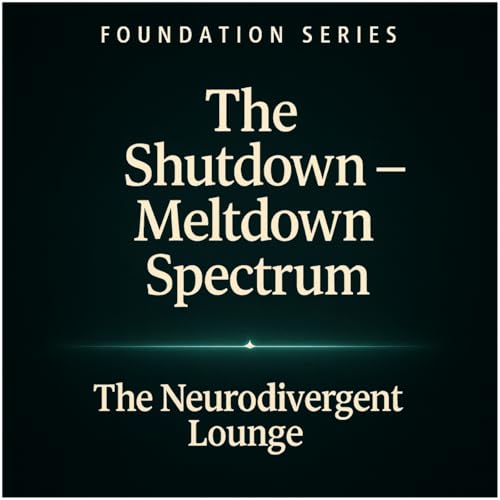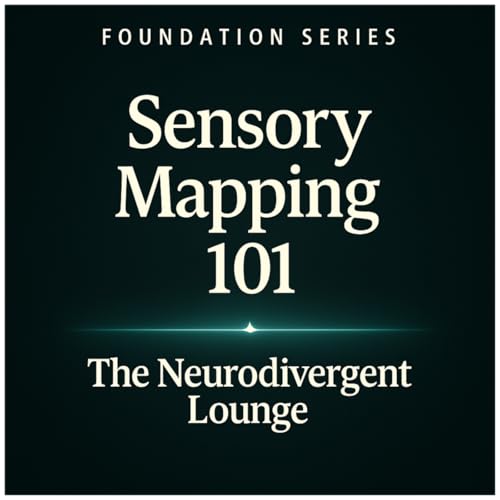The Neurodivergent Lounge - Episode 6: ADHD vs OCD - The Nuances in Brain Wiring
Duration: 15 minutes Host: Marie Martin - Creator and Founder of NeuroSora Codex & SORA Ally
The Hook
Ever been told you're "a little OCD" when you organize obsessively under stress? Or wondered why you get "stuck" in certain thought patterns? This episode clarifies the crucial difference between ADHD pattern-seeking and OCD anxiety cycles.
Episode Description
Marie breaks down the practical differences between ADHD and OCD brain wiring using real-world examples. If you've ever confused repetitive thoughts with OCD or wondered why you can't stop thinking about incomplete social situations, this episode helps you identify your specific brain patterns.
Key Topics
The Confusion Zone - Why repetitive behaviors don't automatically equal OCD, and how ADHD pattern-seeking differs from OCD anxiety management
ADHD Brain in Action - How ADHD processes incomplete social information, why hyperfocus feels fascinating, and why late-night organizing sessions happen
OCD Experience - How intrusive thoughts create anxiety cycles, why behaviors feel necessary vs. interesting, and how OCD co-occurs with ADHD
Key Insights
🧠 ADHD loops seek completion - "I need to understand what happened" vs. OCD's "something bad will happen"
🔄 ADHD behaviors feel satisfying - driven by interest/fascination rather than anxiety management
⚡ Motivation matters - ADHD hyperfocus feels good; compulsions feel necessary even when unwanted
🎯 Different mechanisms need different approaches - pattern-seeking vs. anxiety cycles require different strategies
Practical Applications
For ADHD: Give yourself permission to think things through fully, channel hyperfocus as a superpower, recognize completion-seeking as intelligence
For OCD: Distinguish "need to understand" from "something bad will happen," focus on anxiety management over completion
Next Episode: RSD (Rejection Sensitive Dysphoria) - how it shows up and transforms relationships
Working with Your Wiring - Marie's transformation story: when RSD kicked in but pattern recognition overrode it, allowing response from clarity instead of reactivity
Marie Martin uses her NeuroSORA Codex research and personal neurodivergent journey to help others work with their brain patterns instead of against them.
"ADHD brains naturally move on once patterns are complete - this isn't dysfunction, it's intelligent design."
 22 分
22 分 12 分
12 分 12 分
12 分 11 分
11 分 12 分
12 分 8 分
8 分 13 分
13 分 6 分
6 分

